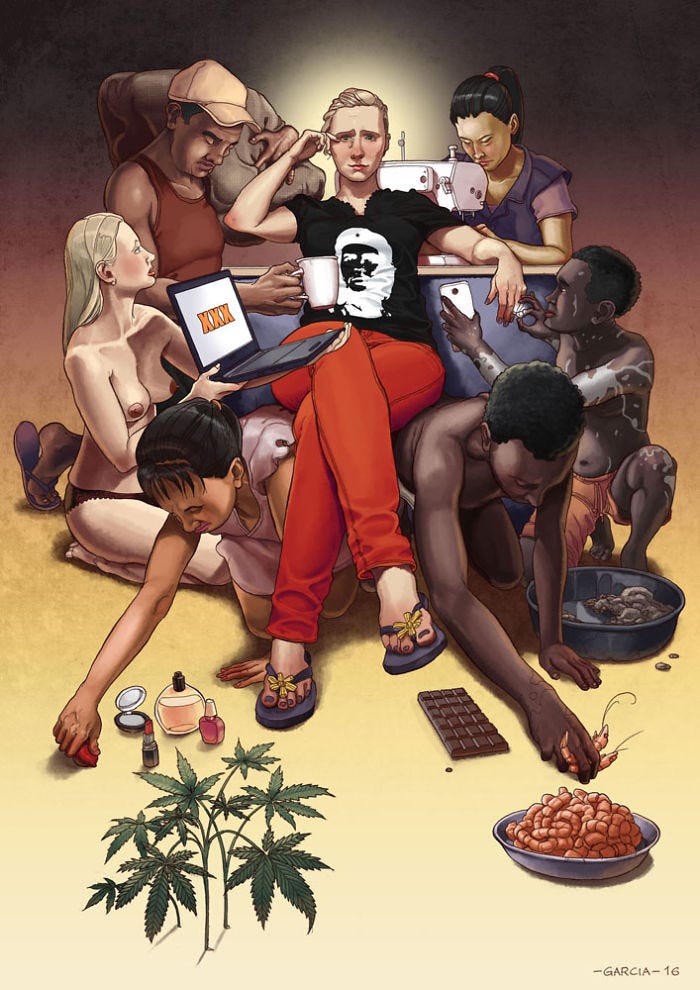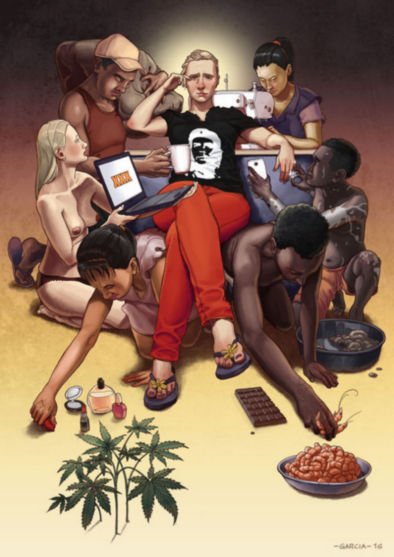“No one can serve two masters.
Either you will hate the one and love the other, or you will be devoted to the one and despise the other.
You cannot serve both God and money.” (Matt 6v24)
At first, we follow and go ‘uhuh, that makes sense…’
But then, we begin to wonder if it really isn’t possible to have more than one affection.
Finally we are shocked that of all the things great and small, Jesus would choose to set up Mammon against God. Really, Jesus?
Over the years, my own relationship with both Jesus and Mammon has been tumultuous, mostly, not having enough of either!
I was born into a poor family and recall episodes such as my father doling out soulful advice to drink water to feel the hunger pangs less, and my mother’s excitement to come home a boil a pot of rice to eat with the packet of fried noodles that had extra lard pieces added in owing to the hawker’s generosity.
Some experience poverty’s sting and end up hoarders. Others feel it’s pain and develop empathy.
I was somewhere in the mid-stream where I feel easily for the lack others experience, but often was tardy to respond in kind. For years, I asked God to make me rich so that I could just tell the poor dejected kid cleaning tables that I would pay for his education.
Poverty, it turns out is a dimension reality embedded in systems of function (or malfunction). These systems include personal perception, familial dynamics, community support or lack thereof and larger cultural mores.
This means the the solution isn’t more money, but hey, more money can’t hurt, can it?
At university I studied Economics and Political Science. Money became even more complicated.
Keynesian or Communitarian? How mighty is the invisible hand or does it get manipulated by invisible strings?
Economic realities and systems continue to evolve, often benefiting the rich at the expense of the poor. As the adage goes: it takes money to make money (which reminds me of how my mother resourceful adapted this principle by running what is known as a collective back in the day).
Why did Jesus seemingly reduce the spiritual life to this strange either-or choice?
The line drawn here is unmistakably clear.
Before we dive into that, here’s a review of the 4 principles we found out so far regarding the spiritual life:-
1.
Spiritual truths are going to be highly uncomfortable, disruptive and demand a response.
2.
If you react and cling to a sliver of what you hear and hastily judge, you will probably turn away too soon.
3.
Lines define but don’t have to confine.
4.
Living by spiritual truths isn’t something we can do on our own.
True enough, this is uncomfortable, to say the least. After all, God does want to bless us, doesn’t He?
Perhaps we are narrowing the discussion down. Ok, step back and observe (which we are about to do).
Whatever we uncover is not meant to confine us and our ability to follow-through will need supernatural help.
With these principles operating, let’s get back to Mammon vs God.
Ready?
Mammon refers to wealth and the entire ecosystem that supports its power, centrality, influence and grip on humankind. So yes it is money. It is also greed, and profiteering, policies and people, practices and punishments.
It is the entire materialist philosophy that reduces the glory of being human to consumption and competition.
It turns us away from each other, tempts us to abuse resources, and generates strife, waste and pollution.
For the most part, our response is to claim that we exercise moderation. But moderation is easily the same space as compromise. What we need isn’t moderation, it’s self-control.
At the personal level, being aware that we do live under a materialist philosophy, we can — if we are serious about the spiritual life — exercise self-control so as not to simply go with the flow of things.
But it will take more than self-control.
According the principle 4, the spiritual life is always beyond our own ability. So while self-control is crucial to preventing one from being lulled into sharing a bed with Mammon (who is often personified as Caesar or even Beelzebub), we will need more.
We need a Saviour.
In saying then that we have to awaken to the truth that we can only afford one allegiance, Jesus calls us to our need of Him, to save us from a power too present and consuming — Mammon — so that we can truly live, and so serve God.
It’s really not hard to see how right Jesus is.
The spirit of the age, all of our training, the bright lights and neon signs all send one singular message: serve your self first, and do it in the fastest, cheapest and most convenient way. It does not help us to ever pause to think if the speed, cost and ease comes at a far larger price in the end.
I think back to my simpler days.
In our family kitchen, we had one kettle that doesn’t know how to whistle, a kwali for frying and cooking and a soup pot.
My mother and some days my father as well, cooked and fed us out of these few things, all nine of us.
Food preparation involved one knife or a cleaver. Nothing separate for garlic, tuber or leaves. One implement but a myriad skills to wield it.
The kitchen and meal preparation was part adventure part danger.
It also made cleaning up so much easier.
Our kitchens today are ridiculously cluttered.
This image says a lot doesn’t it?

I have the suspicion that if we all stepped away from the mad treadmill of consuming, we may actually live freer.
Definitely, Jesus linked it to something fundamental to our humanity. We were designed to worship and serve, as Bob Dylan sings:
“You may be a state trooper, you might be a young Turk,
You may be the head of some big TV network,
You may be rich or poor, you may be blind or lame,
You may be living in another country under another name
You may be a preacher with your spiritual pride,
You may be a city councilman taking bribes on the side,
You may be in a barbershop, you may know how to cut hair,
You may be somebody’s mistress, maybe somebody’s heir
But you’re gonna have to serve somebody, yes indeed
You’re gonna have to serve somebody,
Well, it may be the devil or it may be the Lord
But you’re gonna have to serve somebody.”
-Bob Dylan, from “Gotta Serve Somebody”
So Jesus split reality as we know it down this line between the materialist reduction and the full-orbed life that begins in the depths of our being. The only way to cross from death to life as he puts it another time, is to trust in His saving Grace and to live as He did.
Jesus did not just reference the materialist world here though. In at least two other places, he calls our attention to it. It’s important to look at these to fill out our understanding.
First, he expresses what we all feel: worry. Worry is of course linked to a fear of lack of threat.
To this ever-present emotion for most of us, Jesus says the antidote is to lift up our faces and look outward at the natural world. Look at the birds and observe the flowers.
Taking our eyes away from ourselves and our wants and taking time to absorb how life really operates, wild and gratuitously, is the healing we need for our aching souls.
When Jesus sends out his disciples to learn how to heal and serve, he reminds them not to take any extra clothes or shoes. No luggage really. Just what they have on their backs.
More than what they can do, Jesus is letting them experience that the spiritual life is an adventure of seeing what God does, especially in caring for those who love him.
If more of us had the courage to stop serving Mammon, perhaps it won’t be so almighty.
What Jesus really stood for is Life. Again, he said it:
I have come that you may have life, and life abundant.
Now we have a better idea of this abundant life. It is the spiritual life, made possible by Jesus himself. It is a life that continues to unfold and matures as we learn to live all over again, freed from the clutches of Mammon.
A life that serves God because it is the kind of life God breathed into us to enjoy.
Bible referenced:
Matthew 6, 10. John 10.
{first published on Medium}





